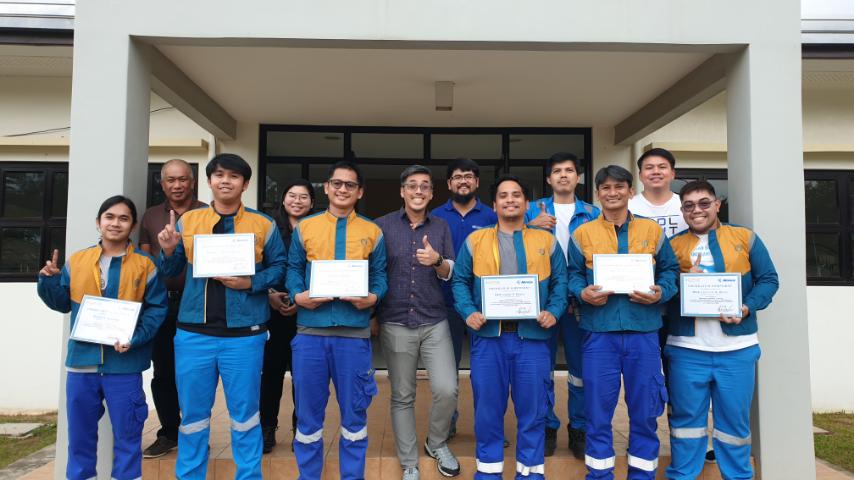In the ever-evolving world of industrial machinery and equipment maintenance, one can't help but notice the duality between tradition and innovation. At the heart of this juxtaposition is the age-old concept of tribal knowledge and age-old wisom, which has long been an essential part of the maintenance industry.
Yet, in today's fast-paced technological landscape, the question arises: can traditional tribal knowledge coexist with the demands of modern machine maintenance practices?
The discussion about striking a balance between tradition and innovation gains particular relevance in the context of our recent event in September, titled "RELIABILITY 2023: Bridging Leaders and AI for Future-Proof Machine Reliability." This event provided a deep dive into the dynamic realms of Machine Learning and AI, Work Optimization, Digitalization, Condition Monitoring Programs, and emerging Technological Trends. While underscoring the increasing significance of staying updated with the latest advancements and strategies in machine reliability, the event also highlighted the wealth of age-old wisdom within experienced maintenance technicians—tribal knowledge.
Tribal knowledge, or institutional knowledge, is the wealth of practical insights and experience garnered by those who have spent years on the shop floor, maintaining and troubleshooting machines. It encompasses shortcuts, best practices, personalized solutions, and historical context that might need to be more available in manuals or formal training. This treasure trove of information is a powerful resource ingrained in the culture of many industrial facilities.
Harnessing Experiential Wisdom
Tribal knowledge stands as a reservoir of invaluable expertise. It is the accumulated wisdom of experienced maintenance technicians offering practical insights that often elude formal training and manuals. These insights include unique strategies, shortcuts, and workarounds to enhance machine upkeep. Moreover, tribal knowledge provides a foundation for customized solutions, allowing maintenance personnel to adapt their approaches to the quirks and characteristics of individual machines. It plays a crucial role in rapid troubleshooting, enabling swift issue diagnosis and resolution, thus reducing downtime and enhancing operational efficiency.
Historical context is another advantage of tribal knowledge, providing insights into maintenance history, past failures, and successful repairs. This information proves invaluable in predicting potential future issues and facilitating proactive maintenance. Additionally, by tapping into tribal knowledge, facilities can save costs by reducing reliance on external consultants and extensive research, leading to more efficient handling of routine maintenance tasks and minor repairs.
Tribal knowledge fosters a culture of continuous improvement, as technicians learn from each other's experiences, encouraging optimization of maintenance processes and reducing downtime. Enhanced collaboration among team members further strengthens the appeal of tribal knowledge, promoting camaraderie and boosting job satisfaction. While these advantages are compelling, the necessity of formal training is a valid question, considering the breadth of expertise offered by tribal knowledge.
The Case for Formal Training
Formal training offers a comprehensive and structured approach to machine maintenance that complements the strengths of tribal knowledge. This structured education ensures that all team members receive standardized knowledge, reducing the risk of misinformation and promoting consistent and up-to-date practices.
 CRE Philippines recently concluded an onsite training.
CRE Philippines recently concluded an onsite training.
One of the distinguishing features of formal training programs is their incorporation of industry best practices and the latest advancements in machine maintenance and reliability. This exposure equips participants with techniques and methods that have been proven effective across various industrial sectors. Moreover, formal training delves into the theoretical foundations of reliability engineering, enabling participants to understand the principles underpinning maintenance strategies. This knowledge empowers them with critical thinking and problem-solving skills, enhancing their ability to address complex maintenance scenarios.
Formal training emphasizes practical application through exercises, simulations, and hands-on experiences. These activities help participants apply theoretical concepts in controlled settings, fostering skill development and boosting their confidence in real-world maintenance scenarios. Furthermore, formal training often leads to industry-recognized certifications, validating participants' expertise and enhancing their credibility when working on complex machinery. One of the significant advantages of formal training is its ability to provide clarity in a changing industrial landscape. It offers a clear understanding of the importance of actions and their impact on interconnected systems and machinery, making it an invaluable component of effective machine maintenance.
Balancing Tradition and Innovation
In the ongoing discussion of the role of tribal knowledge in modern machine maintenance, the emphasis lies in finding a balance between tradition and innovation. Tribal knowledge is a valuable resource, enriched by years of hands-on experience, offering practical insights, customized solutions, and historical context. Its collaborative nature also fosters a positive team culture.
Nonetheless, tribal knowledge has limitations, including inconsistencies in advice and a potential lag in keeping up with the latest technological advancements. It relies on the expertise and availability of specific individuals, making it vulnerable when these experts leave. Moreover, the absence of official certificates or qualifications can lead to confusion and inconsistency in industrial settings.
Source:
Edwards, J. (2023, September). Balancing Tradition with Innovation. Machinery Lubrication. https://www.machinerylubrication.com/Read/32484/balancing-tradition-with-innovation-crucial-role-of-training


